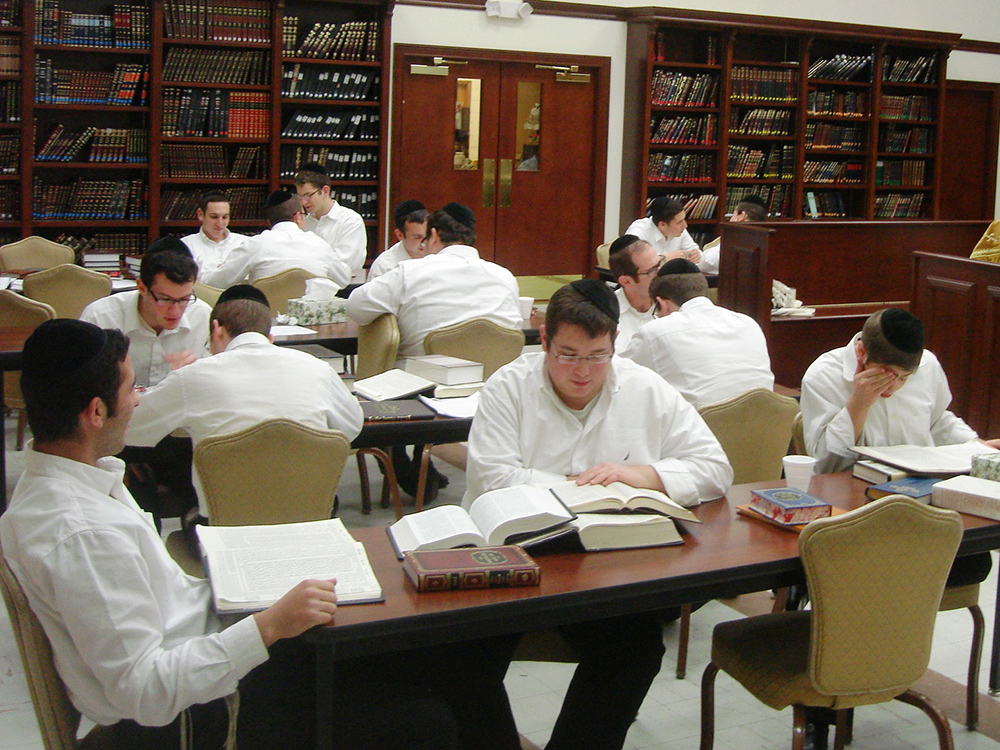I currently attend a college in the U.S., and lately there has been much controversy surrounding “safe spaces,” where students can retreat to avoid the overwhelm caused by triggering words and ideas. Many insist on their importance, while others contend that they hamper dialogue and free speech.
I was wondering, what is the Jewish perspective on safe spaces and the overabundance of political correctness on campuses these days? Should professors and other lecturers not speak about certain topics or use certain words because students might feel triggered?
Reply
I’m well aware that this controversy is nuanced and politically charged, so without getting into the particulars of safe spaces, let me give you a Jewish perspective:
A quick visit to any Talmudic study hall is enough to make it abundantly clear that Judaism is very much in favor of boisterous, spirited (to put it mildly) debate to help sharpen one’s opinions and reach a correct conclusion. The Talmud itself is essentially arranged as a series of arguments between the rabbis, debating a host of Judaic subjects.
In fact, the Talmud tells us that one can really acquire Torah knowledge only through learning in groups, and it has some very harsh words for those who don’t want to learn with others.1
In short, it’s clear that healthy and even heated discussion between opposing viewpoints is the Jewish way. The real question, however, is, what is the Torah’s view on freedom of speech? Should some speech be curtailed?
Freedom of Speech and the G‑d Factor
First, we need to understand an underlying philosophical difference between the Constitution and the Torah. According to the Constitution, man was created with natural rights, so the government sees it as its job to create laws that protect those rights. According to the Torah, however, G‑d did not just create us and leave us up to our own devices; rather, He is actively involved in the world and cares what we do. Therefore, He did not give us passive rights, but active responsibilities and duties.
So as much as the Torah holds vigorous debate and speech in high regard, it doesn’t hesitate to prohibit certain types of speech, such as lashon hara—i.e., to speak negatively about someone else, even if it is true.2 Speaking negatively about someone violates the biblical commandment “You shall not go around as a gossipmonger amidst your people. You shall not stand by [the shedding of] your fellow’s blood. I am the L‑rd.”3 And depending on the situation, tale bearing can violate up to 31 Torah commandments.4
To be sure, if keeping silent will result in physical or financial harm to someone, then one is required to speak up.5 Nevertheless, all things being equal, such speech is prohibited.
Political Correctness and Noah’s Ark
The Talmud points out a fascinating detail in the Bible’s description of Noah gathering all the animals into the ark.12 The verse states, “Of the pure animals, and of the animals that are not pure . . . two by two they came to Noah into the ark, male and female, as G‑d had commanded Noah.”13
This is an unusual expression. In general, the Torah is written in short and concise language. Every letter has meaning, and no letters are extraneous. So why call an animal “not pure” instead of “impure,” which uses an extra eight letters in Hebrew? Because the Torah is avoiding referring to these animals in a derogatory way, teaching us the importance of refined speech.
But then the Talmud goes on to say that many times the Torah does use the term “impure”—because when it comes to teaching students, one should always use clear, concise language, even at the expense of more refined speech.14
So although teachers need to be mindful of what they say, and certainly never intentionally use harmful speech, when choosing between PC and non-PC language, it is important that clear, concise and unambiguous language be used, lest the lesson become garbled and misunderstood.
Safe Spaces Are Still Up for Debate
We’ve left plenty of room for your classmates to debate the pros and cons of safe spaces from the perspective of constitutional rights. Just keep in mind that from a Jewish perspective, talking negatively is almost always prohibited. (Chabad.org)
FOOTNOTES
1. Talmud, Berachot 63b.
2. See Shulchan Aruch HaRav, Orach Chaim 156:10.
3. Leviticus 19:16.
4. Chafetz Chaim, prohibitions 1–17 and positive commandments 1–14.
5. See Sifra, Leviticus 19:16; Talmud, Sanhedrin 73a; Shulchan Aruch, Choshen Mishpat 426:1; Shulchan Aruch HaRav, Choshen Mishpat, Hilchot Metziah uFikadon 33; Chafetz Chaim, Be’er Mayim Chaim, Hilchot Issurei Rechilut 9:1.
6. Leviticus 25:17.
7. Talmud, Bava Metzia 58b; Sefer haChinuch 338; Shulchan Aruch, Choshen Mishpat 228:1.
8.
Shulchan Aruch, Choshen Mishpat 228:4.
9. See Shulchan Aruch, ibid.
10. See Sefer HaChinuch 338.
11. Sefer HaChinuch, ibid. Nevertheless, if one can remain silent and it will not be detrimental, then that is the ideal.
12. Talmud, Pesachim 3a.
13. Genesis 7:8–9.
14. See Talmud, Pesachim 3b, and commentaries ad loc.





